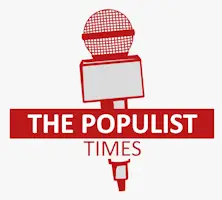At a glance:
• Viktor Orban begins Hungary’s EU presidency on July 1, amid concerns from European leaders
• Orban’s ‘Make Europe Great Again’ slogan hints at potential conflicts with EU norms
• Hungary’s presidency comes as populist parties gain ground across Europe
• EU fast-tracks top job appointments to limit Orban’s influence
As Hungary’s controversial Prime Minister Viktor Orban prepares to take over the rotating presidency of the European Council on July 1, EU officials are holding their breath. Orban, known for his pro-Kremlin stance and populist policies, assumes the role just weeks after nationalist parties made significant gains in European elections.

Orban’s Provocative Approach Raises Concerns
Orban’s choice of the slogan “Make Europe Great Again” for Hungary’s presidency has already set off alarm bells in Brussels. The phrase, reminiscent of Donald Trump’s campaign slogan, suggests Orban plans to use his position to challenge EU norms and push his conservative agenda.
Hungarian officials have attempted to downplay concerns, promising a “normal” presidency. However, Orban’s track record of disrupting EU meetings, blocking sanctions against Russia, and obstructing aid to Ukraine has left many European leaders skeptical.
Limited Powers, But Potential for Disruption
While the rotating presidency’s powers are limited, primarily involving setting meeting agendas and acting as a facilitator, Orban’s influence could still be significant. EU affairs experts note that the timing of Hungary’s presidency, coinciding with a transition period following European elections, may limit Orban’s ability to cause major upheavals.
In a preemptive move, EU leaders quickly agreed on nominations for top positions, including extending Ursula von der Leyen’s mandate as head of the European Commission. This swift action was seen as an attempt to sideline Orban from the nomination process.
Orban’s Domestic and International Challenges
Despite the recent surge in support for nationalist parties across Europe, Orban’s position at home has shown signs of weakening. His Fidesz party’s performance in the European elections, while still strong, was its worst since Hungary joined the EU in 2004.
Internationally, Orban finds himself increasingly isolated, even among Europe’s right-wing parties. His stance on issues like Ukraine and immigration has put him at odds with other populist leaders, such as Italy’s Giorgia Meloni.
As Orban begins his presidency, EU members are likely to keep a close watch on Hungary’s actions. With €19 billion in EU funds for Budapest frozen over various issues, including LGBTQ rights and corruption, Orban may find himself walking a tightrope between pushing his agenda and maintaining access to crucial funding.



